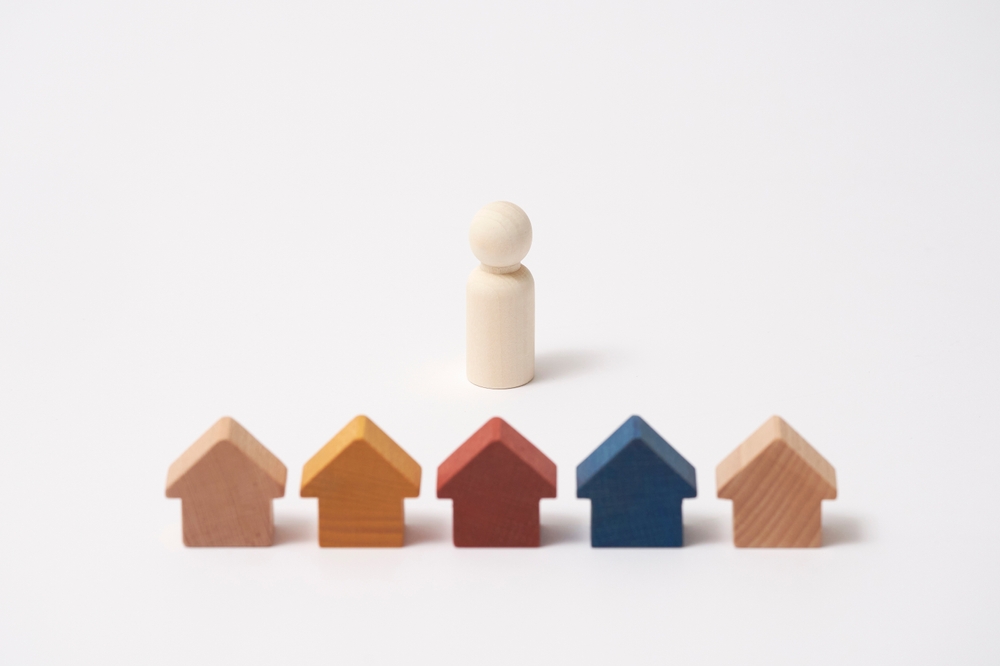Divorce can be, and is without a doubt extremely complex. You’ve worked for years to build a life with your partner, and now you’ve come to a time where you have to work to build lives apart from one another.
Divorce comes with a plethora of difficult emotions and conversations, and the division of your assets can add to the already mountain-sized amount of stress you’re feeling.
Although we can’t relieve you of all the stresses of divorce, First Option Mortgage of Indianapolis is here to help relieve some of the anxieties you may have about your house, as well as steps you can take for what comes next.
Read on to learn more!
Communicate and Be Honest
For many, a lack of communication may be what caused the divorce in the first place. According to the National Library of Medicine, lack of commitment and communication is the result of 75% of all divorces in the US.
As hard as the divorce conversations can be, it’s critical that you discuss the big things with your soon-to-be ex as early and honestly as you can so that you can be sure you retain some control over your incoming future. This means that you will need to talk about what is going to happen to your marital home.
There are typically three ways you can handle the division of the home in a divorce:
- You can sell the house and split the money with your ex once it’s sold.
- You or your ex can refinance and keep the home in their name only. If this option is chosen, the person refinancing will usually have to buy the other person out.
- You both can decide to keep the house jointly for the time being.
Before you and your spouse finalize the divorce, make sure that you both know who is responsible for paying the mortgage during the separation and after the divorce is settled. An important question you’ll need to ask yourself is who can financially pay for your home’s mortgage. Will you be able to afford the house on your single income? First Option Mortgage of Indianapolis has representatives that can help you determine this if you’d like!
The reason that these kinds of conversations are so important is that the consequences are long-term. It’s important to be honest with each other (and yourself) about both of your wants, needs, and the ability to keep up with your house.
If you don’t have these conversations or let your emotions get the best of you without thinking about the financial consequences, you could end up putting yourself in danger of financial risk. One of these risks could be falling behind on your mortgage payments, and this can do quite some damage to your credit score. A lower credit score can then affect your chances of purchasing a house in the future, ultimately adding more stress to your already stressful life once the divorce has been finalized.

Your Children Should Be at the Top of Your Mind
Many people that go through divorce also have children in the mix of it all, and this can add even more stress to the whole situation. You want your children to have some sort of comfort during these hard times, and this is why the previous section about communication is so important.
Many divorce lawyers will tell you that one of the biggest reasons divorced people stay in the marital home is because they want to keep a sense of stability for their kids. This also allows the kids to stay in the same school district and neighborhood that they’ve grown so accustomed to. All of these reasons are important, but you still need to make sure that you can actually afford the home in the long term.
If you know you can afford the marital home, you may notice that having one parent living in the marital home is a great way of maintaining continuity. It aids in keeping things familiar and rather stable during such a treacherous and rocky time.
If you and your spouse decide that one of you will stay in the house, then you’ll need to refinance. There are two reasons why this happens. Refinancing will allow the person staying to remove the other person’s name from the mortgage. This is a positive for both of you. It also gives the person staying the means to buy the other person out.
If you’re looking to refinance, our representatives at First Option Mortgage of Indianapolis can help you out. They’ll give you step-by-step instructions on what to do and help make the refinance as smooth as possible.

You’re Leaving the Marital Home . . . What’s Next?
If you’ve decided that you’re not staying in the marital home, deciding what comes next can be very overwhelming. With so many big decisions and changes happening, determining where you’ll live after the divorce can be a lot. This is especially true considering the amount of strong emotion you’re probably feeling.
Although it may take time, it’s still possible to find a house on your own. Many people think that homeownership only applies to couples and families, but the fact of the matter is that there are more single people purchasing homes compared to the number of couples purchasing homes.
With that being said, let’s go over a few tips for single people looking to buy a home.

Being Single and Buying a Home
Know Your Wants and Needs
Know what you want and need from your house so you don’t get distracted by all the bells and whistles. Take a look at things like:
Home size: Do you need a home for your current situation or do you want some room to grow? One person will require less space. If you’re planning on having your kids visit frequently, maybe consider something with more space.
Lot size: Do you want privacy? A spacious yard? Do you want to be close to your neighbors? These factors will impact your decision on the size of the lot you choose.
Home type: Different types of homes come with different benefits. Are you wanting a duplex that offers space but less yard maintenance? Or do you want a single-family home with room for your kids? These are all things to consider when choosing your type of home.
Resale value: Is your home’s resale price important to you? Even if you don’t have kids, maybe you still want to buy in a nice area inside a school district for future resale value. Maybe you’re looking for a place near more single people. Your realtor should be able to help you find homes in areas that appeal to you the most.
How Being Single Affects the Home Buying Process
When you’re trying to get your hands on a single-income loan, keep these things in mind:
- Your income is the only income being considered for a loan, you carry all of the responsibility.
- Monitor your credit to ensure that your credit report doesn’t contain any harmful errors from the divorce.
- Avoid large credit purchases immediately before and after applying for a home loan.
- Consider having a guarantor or co-borrower if your credit history isn’t too long. This can help you better qualify for a loan.
Having a single status won’t directly affect your loan qualification. You can’t be denied a loan just because you aren’t married anymore. You may only afford certain things since you only have one income, but if you can afford the loan, you won’t be denied just because you’re single.
Single people can enjoy all the benefits of homeownership. If you’re newly single and looking to buy a house, get in contact with First Option Mortgage of Indianapolis today. If you’re looking for more tips on single-person homeownership, read our blog here.








